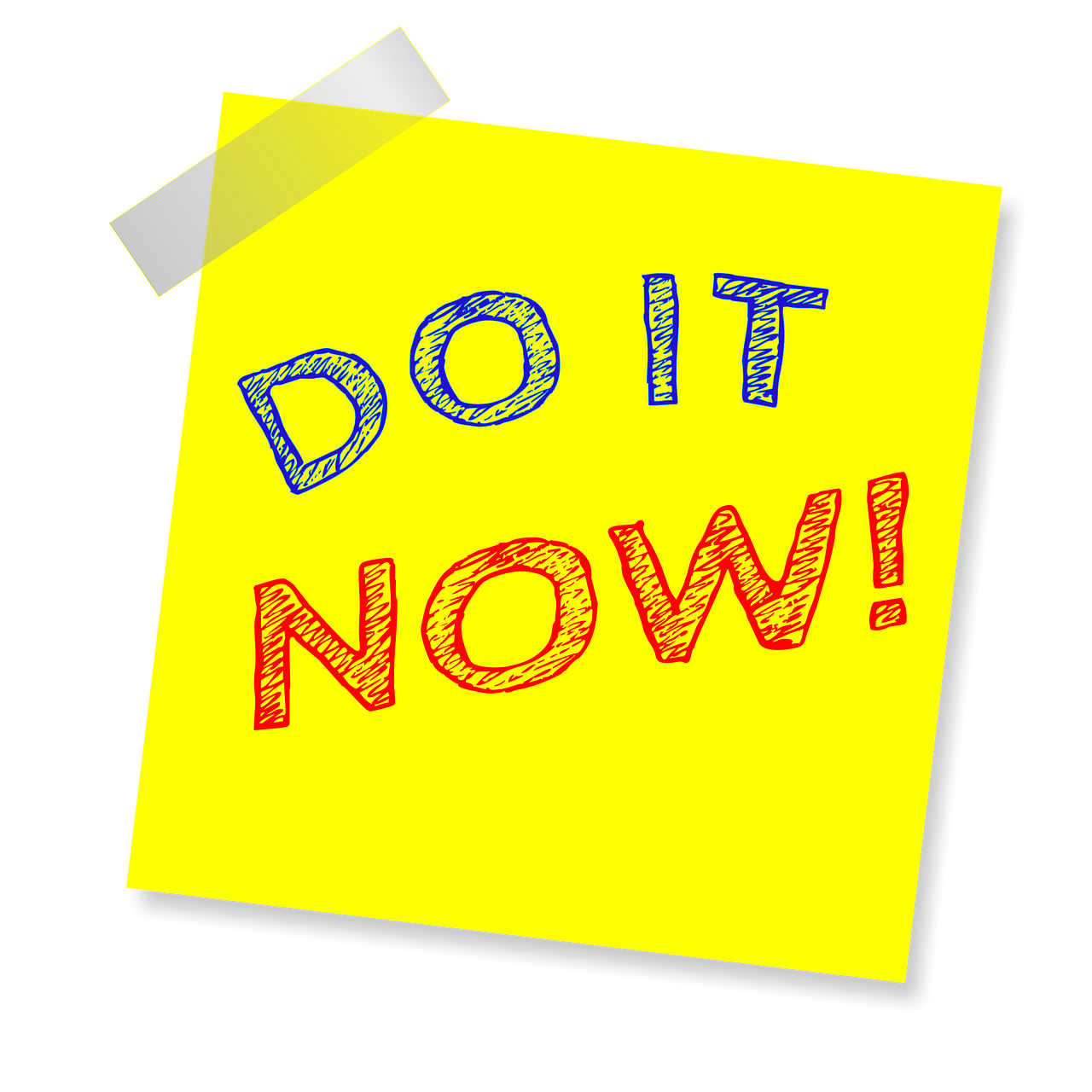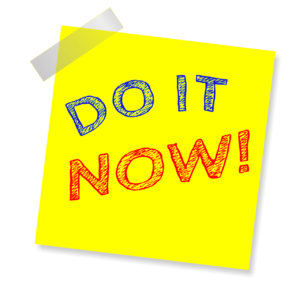
With so many tasks to get done and so little time to do them, we share a few pointers on what HR managers can do to reduce procrastination and actually get tasks finished.
“Never put off till tomorrow what you can do today." This quote originates from Thomas Jefferson who, himself, managed to write America’s Declaration of Independence and become the third President of the United States. But while Jefferson’s advice may be sound, it is often hard to follow in today’s multi-tasking, fast-paced world of HR. Many of us juggle numerous tasks simultaneously. Understandably, it is often tempting to put things off until the last minute in an effort to keep up with new work that continually piles up in our in-trays. Procrastination, if it happens regularly, can itself bring on more unnecessary stress. This issue, we share a few ways to help kick procrastination habits.
What is procrastination?
Procrastination is putting off the things that you should be doing now, and often filling the immediate time with lower priority—and often less challenging—tasks. It is something that happens to the best of us. How many times, with a huge pile in your in tray, have you thought, “I’ll just file these papers/grab a coffee/shred these documents/check my e-mail/tidy up my desk/phone my friend…before I really get down and make a start on things…”?
They key is not so much completely avoiding, but at least having the ability to recognise, procrastination. It is important to look at the reasons behind procrastination, how this manifests itself—in ‘alternative’ tasks you take on—and how to keep these in check. Doing so can help create more opportunities and improve your career prospects at work, it can also increase your self-esteem and improve relationships with others outside the workplace. So immediately, after reading this article—you have to put down HR Magazine and get on and finish your next task!
Why do we procrastinate?
Procrastination may arise from simply waiting for the right mood or the right time to do something. It may also occur due to the way that you organise your work in terms of:
- A lack of clear work objectives
- Ambiguous tasks
- Unclear standards for task outcomes
- Underestimating the difficulty of tasks
Not getting on with tasks in hand can also arise due to a lack of decision making skills, a fear of failure or success, and constantly revising things in an attempt to achieve perfection.
Tips to reduce procrastination
1. Minimise distractions
We all work in the real world, and e-mails, phone calls and meetings are all part and parcel of office life. However, they all also provide convenient excuses for not getting on with the task in hand. It becomes too easy to say, “I’ll just send this e-mail and then I’ll get straight onto it...” delaying the inevitable. To reduce the chances of this happening, you must keep distractions to a minimum. When you are using your computer only run the applications you need to complete a given task. For example, if you’re preparing a PowerPoint then turn off internet browsers and e-mail applications until you get it finished. Also, try and isolate yourself from colleagues’ conversations, and turn off your mobile. Yes, it will take clients a little longer to get in contact with you, but with all your attention focused on that reply – you’re likely to get it done faster and more effectively than you would when multi-tasking.
2. Avoid multi-tasking
Yes, we know Gen-Y love to multi-task and on the surface it does seem much more time effective to be doing three or four things at the same time. But the truth is our brains can only concentrate on one or two things at the same time, if we attempt any more—things are just not going to get done properly. When you’re performing multiple tasks at once, it is also very easy to lose track of what you’re doing and end up with numerous tasks only partly completed. Try to focus on one task at a time until it is finished before moving on to the next. Also don’t keep on refining the same project—looking for 100% perfection, because you’ll never get there. Obviously get it as good as you can, within a realistic timeframe, and once you get to 90% then leave it and move on to the next task. This way you will also have no excuse for leaving something unfinished that you would need to come back to later on.
3. Use an egg timer
Let’s face it we’ve all put off an unpleasant tasks, because we just couldn’t face them. To help make more menial and unpleasant jobs a little more palatable, set yourself a time limit—say ten minutes—to compete the task. After this time, if you want to stop working, you can. You may find that as long as you know you have given yourself ‘permission’ to stop after this time, often you may find your momentum carries you to keep on working anyway.
4. Treat yourself
Go on...give yourself a treat. Allow yourself a bit of positive motivation to get things done. For larger projects that might take a half day, tell yourself that once you have completed a particular task, you can go for lunch with your colleagues. Alternatively, for smaller tasks you might establish one-hour time blocks throughout the day when you work on each of these tasks one-by-one, each followed by a quick tea break, or a potter over to the water cooler. The reward does not have to be particularly grand, just a little something to give yourself a boost.
5. Simplify
The most important part of getting any task done is starting it in the first place. Do not worry too much about the details of the task right at the beginning. Instead, just focus on getting it started—it is amazing how much of a task you can actually get done, before staring to look at the details. For example, when preparing a proposal, start by writing down the most important points first. Formatting, finding the most lucid vocabulary and making it as persuasive as possible can come later. At the beginning, just get something banged out on the computer, as this is a much less stressful and intimidating way to begin, especially for larger and more complex projects. When the first draft is done, and you’ve rewarded yourself with a coffee break, this also gives you some breathing space to review it, re-structure it and augment or delete content, as required.
While procrastination tends to be a habit and may be difficult to completely overcome, by adopting some or all of the strategies you should find it easier to focus and get things done. Remember, to be nice to yourself, and reward your hard work with some quality downtime too, so you don’t burn out. Work life balance or work life integration is something HR managers hear a lot about—common sense dictates that coming to work well rested and refreshed will also help you focus and reduce procrastination.
Right, that’s that feature finished—I can now reward myself with a cup of tea!





